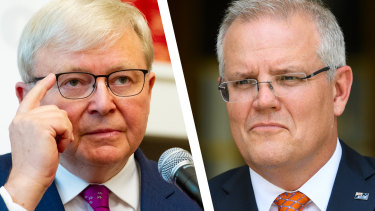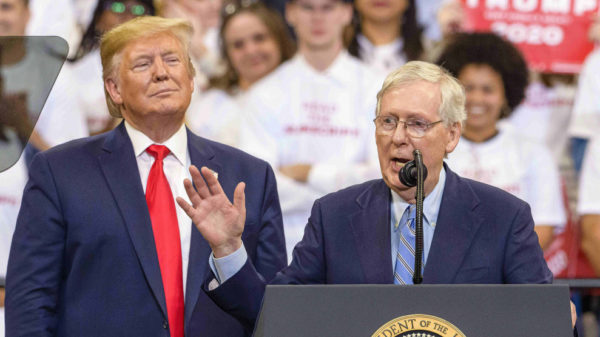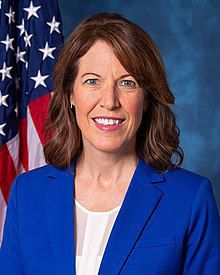The United States needs a president who can heal the nation’s deep political divide — who can work with, and appeal to, members of both parties and independents.
Someone with a proven record of collaboration who can meaningfully address climate change, provide health care for all, achieve responsible gun control, resolve the bitterness over immigration, protect our environment, address tech privacy and anti-trust issues, and regain international respect for our country. And someone who can change the tone and tenor of our national politics.
The Democratic candidate who can best do that is Amy Klobuchar.
“I’m someone who tries to find that common ground,” she told our editorial board. “Courage is being willing to stand next to someone you don’t always agree with for the good of this country.”
Of the leading primary contenders, the U.S. senator from Minnesota would provide the party’s best chance of victory in November. She may be too centrist for some voters in our deep blue state. But she understands California’s issues, especially related to technology, better than many of our own elected leaders. Besides, California Democrats and independents participating in the March 3 primary would be wise to remember that their politics are not shared across the nation.
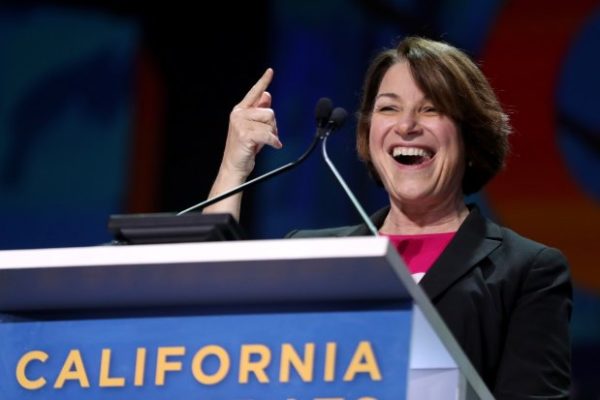
While this state will, for the first time since 2008, have a primary vote early enough to meaningfully affect the nomination, the Golden State will not be a critical factor in the November general election. That race will be decided in swing states like Wisconsin, Michigan and Pennsylvania.
Which is one of the reasons Klobuchar stands out. She has proven that she can appeal to voters in a purple state. She won reelection in 2018 by capturing 60% of the vote in Minnesota, where two years earlier Hillary Clinton eked out victory with only plurality support of 46%.
Klobuchar applies to her presidential quest the same inclusionary strategy that has bolstered her support in Minnesota. “I am the one that is going to be able to build that coalition of people that can win,” she said. “My policies are bold, but they are practical.”
Articulate and empathetic, with a much-needed sense of humor, Klobuchar is a graduate of Yale and the University of Chicago law school. She worked as a private attorney, was elected prosecutor for Minnesota’s largest county in 1998 and then won a statewide election to the U.S. Senate in 2006.
Her grandparents were immigrants. Her Slovenian-born grandfather found work in the iron ore mines of northern Minnesota. “If you have trouble stretching your paycheck to pay for that rent, I know you, and I will fight for you,” she said at this month’s presidential debate. “If you have trouble deciding if you’re going to pay for your childcare or your long-term care, I know you and I will fight for you.”
And she has.
Known in the Capitol for working across the partisan aisle, Klobuchar has passed more than 100 pieces of legislation to, for example, help farmers keep their property through bankruptcy, avoid shortages of key prescription drugs, assist veterans who are victims of sexual assault, strengthen airline safety rules and hold members of Congress personally responsible for sexual harassment claims.
Click here for a complete list of our election recommendations.
Get editorials, opinion columns, letters to the editor and more in your inbox weekday mornings. Sign up for the Bay Area Opinion newsletter.
She understands the seriousness of climate change and advocates a carbon tax as part of a plan to make the country carbon neutral by 2050. If elected, she would immediately return the United States to the Paris Agreement, from which President Trump withdrew in 2017.
She supports universal health care by providing a public option that expands Medicare or Medicaid, but opposes the all-government-run system backed by Sens. Bernie Sanders and Elizabeth Warren. And she would reduce prescription drug prices by lifting the ban on Medicare negotiations for better pricing and bringing in less-expensive medications from Canada.
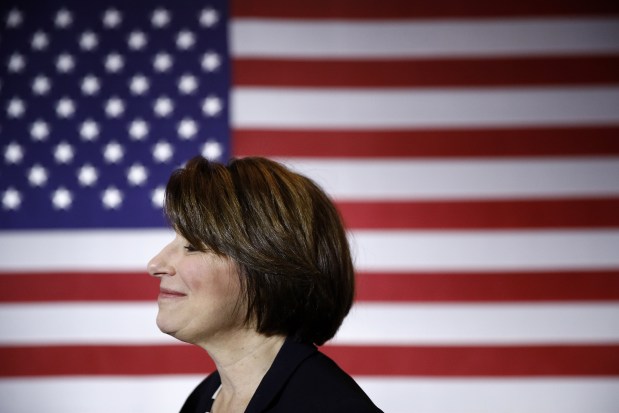
She comes from a state known for hunting, but supports universal background checks, a ban on assault weapons and limits on magazine sizes. She supports free college one- and two-year degrees and doubling of federal Pell grants, but opposes making higher education free for wealthy students who don’t need aid.
She is more knowledgeable on tech issues than any candidate in the race. Her reasoned approach balances the need to nurture innovation with the responsibility to prevent monopolistic behavior. Noting that, in the absence of strong federal consumer privacy and protections laws, California and other states are stepping up with their own, Klobuchar calls for smarter federal laws along with reforming anti-trust policy.
She was one of the negotiators of a 2007 bipartisan immigration deal that ran into the buzz saw of right-wing radio. Today, she supports comprehensive immigration reform that includes a pathway to citizenship for those here illegally, preserving the DREAM Act that grants residency to immigrants who entered the country as minors, and border security.
She supports bringing most troops home from Afghanistan, Congress reasserting its war authorization role, diplomacy with Iran, a two-state solution for the Israeli-Palestinian conflict and a tougher stance on Saudi Arabia’s human rights abuses.
Infusing it all is Klobuchar’s profound sense of realism. She doesn’t pander.
Discussing health care options during the October debate, she challenged Sanders and Warren’s single-payer approach: “The difference between a plan and a pipe dream is something you can actually get done. And we can get this public option done.”
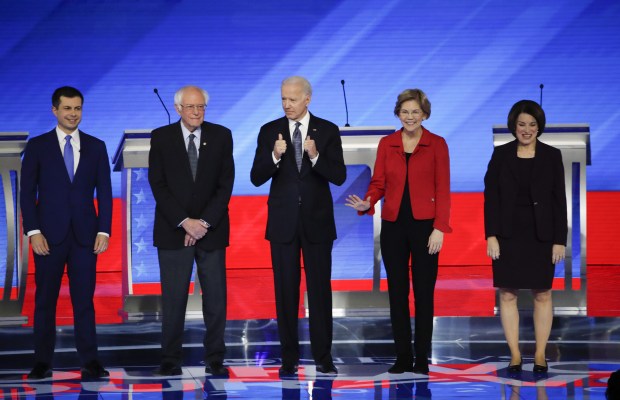
While many other candidates have dropped off the radar and out of the race, Klobuchar has hung on and has finally started to get the media and voter attention she deserves. It’s still early, but the primary pace will accelerate rapidly in the next 2 1/2 weeks with the Nevada caucuses on Feb. 22, the South Carolina primary on Feb. 29 and the March 3 primaries in 14 states, including California.
The results from the Iowa caucuses and New Hampshire primary, albeit terribly small, suggest that a majority of Democrats are wisely looking for a centrist candidate. Sanders has garnered the most votes only because the moderate vote splintered between three candidates. Most Democrats are not seeking a political revolution like Sanders and Warren advocate.
Of the centrists, former Vice President Joe Biden’s surprisingly poor finishes raise questions about his staying power; Pete Buttigieg’s only political experience, as mayor of South Bend, Ind., gives one pause, however articulate he may be; and former New York Mayor Michael Bloomberg, with troubling questions about his treatment of women, seems to want to bypass the vetting process the others have been subjected to.
Klobuchar is gaining traction because she has become more effective and articulate with each debate. Voters are realizing that she has the energy, character, compassion, intelligence and common sense to win in November.
Californians should support Klobuchar.
